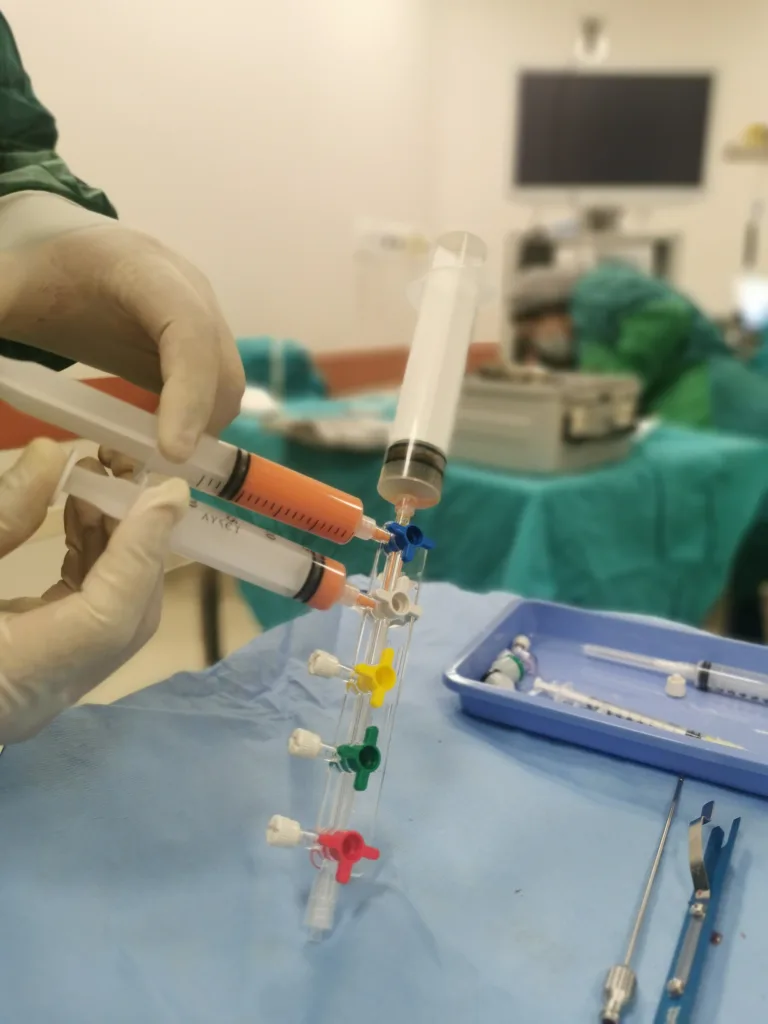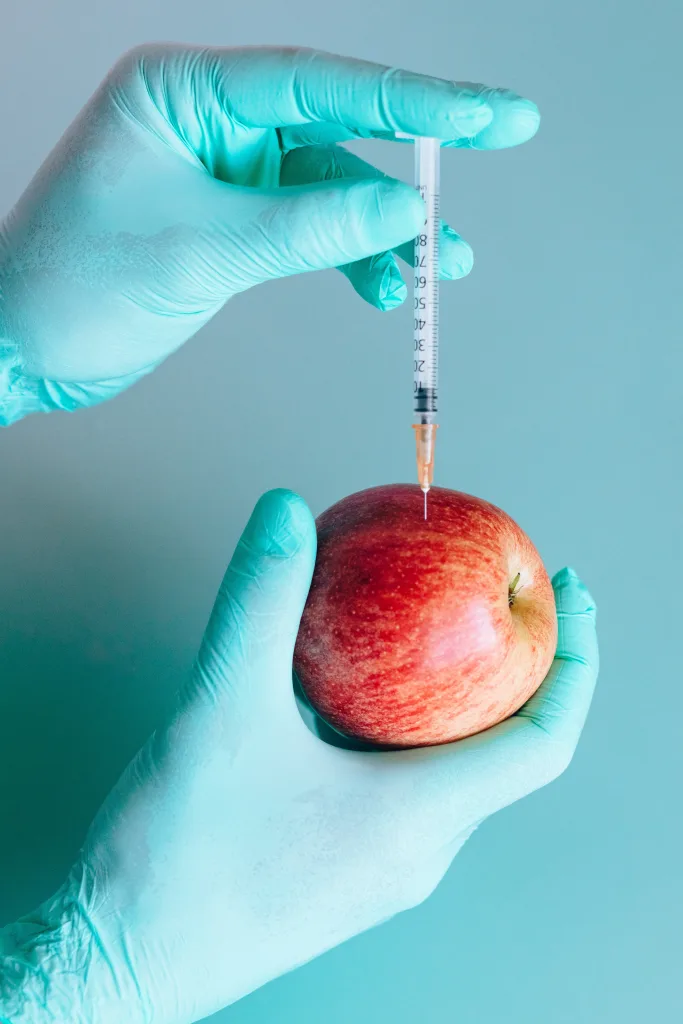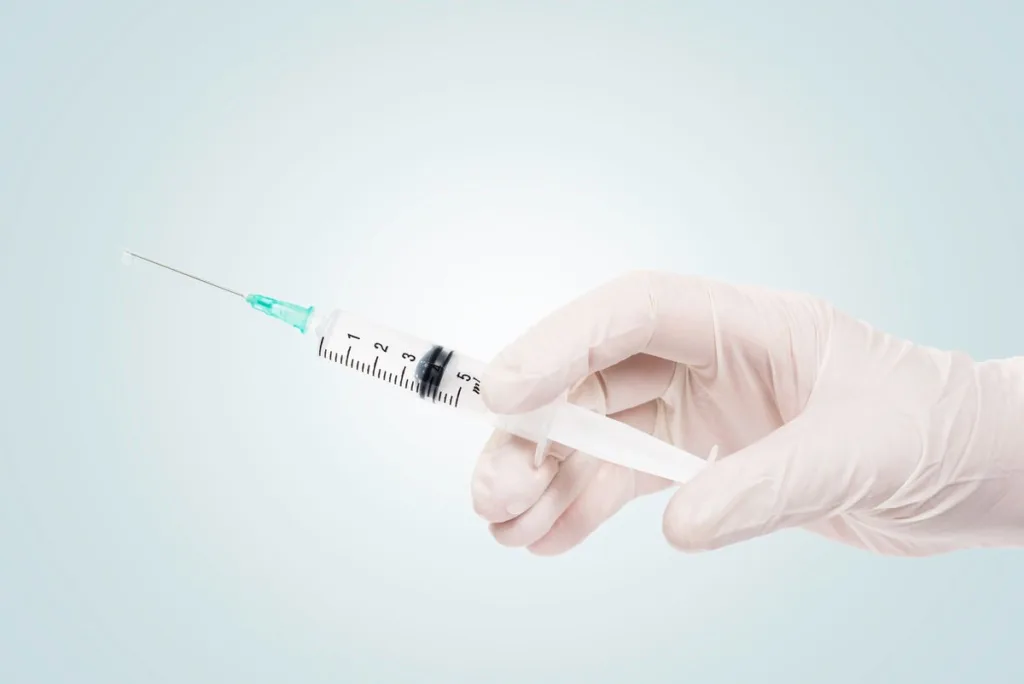Vitamin injections have become an increasingly popular wellness trend in recent years. With benefits like increased energy, improved immunity, and faster muscle recovery, it’s easy to see why. However, like any medical treatment, vitamin injections do carry potential side effects that are important to understand.
In this post, we’ll explore the pros and cons of vitamin injections. You’ll learn expert strategies to minimize risks and effectively manage any reactions. With knowledge and care, you can make informed decisions about your health. Let’s dive in!

Introduction: Unveiling the Benefits and Risks of Vitamin Injections
Vitamin injections involve administering vitamins and minerals directly into the bloodstream, typically via intramuscular or intravenous methods. Compared to oral supplements, injections provide more rapid absorption at higher concentrations.
This targeted delivery can offer many advantages. Vitamin injections may help correct deficiencies, aid recovery from illness or surgery, reduce fatigue, enhance immunity, improve skin health, support weight loss, and more. With their surge in popularity, vitamin injection clinics and mobile services now exist across the country.
However, as with any medical treatment, potential side effects can occur. Reactions may include pain, swelling, bruising, dizziness, headache, nausea, and more. Rarely, severe allergic reactions are possible. Without proper precautions, vitamin injections could also lead to toxicity from excessive doses.
This post provides key insights on safely navigating the use of vitamin injections. You’ll learn expert techniques to minimize adverse reactions and effectively manage any side effects. Let’s start by understanding when vitamin injections may be warranted over traditional oral supplements.

Understanding the Need for Vitamin Injections
Vitamin injections are specially formulated for individuals who cannot get adequate nutrition absorption through diet and oral supplements alone. Some common scenarios include:
- Chronic Conditions: Diseases like cancer, autoimmune disorders, kidney disease, and bariatric surgery can impair vitamin uptake. Injections can help circumvent this issue.
- Special Populations: The elderly, pregnant women, strict vegetarians, and those with gastrointestinal disorders may require injections to correct nutritional deficits.
- Increased Demand: Athletes, frequent travelers, people experiencing high stress, and those recovering from illness have higher vitamin needs that may not be met through traditional methods.
- Rapid Correction: Certain vitamin deficiencies like vitamin B12 require prompt resolution, making injection delivery optimal.
In these cases, vitamin injections can be more effective than oral intake. Bypassing the digestive process provides advantages like:
- Increased bioavailability and absorption of vitamins and minerals.
- Ability to deliver higher therapeutic doses than possible orally.
- More immediate increases in vitamin blood levels after administering injections.
However, vitamin injections should only be considered after thorough medical examination and bloodwork. A healthcare professional can determine if injections are truly warranted and appropriate. Never self-prescribe injection therapy.
Potential Side Effects and Their Indicators
While generally safe, vitamin injections may cause adverse reactions in some individuals. Potential side effects include:
- Injection Site Reactions: Pain, bruising, swelling, redness, and tenderness at the injection site. This is typically mild and resolves quickly.
- Allergic Reactions: Itching, hives, rash, swelling, wheezing, chest tightness, and anaphylaxis may occur, especially in those with allergies. Reactions usually start within 30 minutes.
- Toxicity: Excessively high doses can cause toxicity. Symptoms include nausea, vomiting, diarrhea, bone/nerve pain, muscle weakness, vision changes, seizures, kidney problems, and arrhythmias.
- Interactions: Certain medications like blood thinners and antibiotics may interact with vitamin injections.
- Other Effects: Dizziness, headache, chills, fever, nausea, metallic taste, and changes in urine color are also possible.
Mild injection site soreness, temporary itching, and urine color change are generally nothing to worry about. However, more severe or persistent reactions require prompt medical attention.
Monitor your response during and after vitamin injections. Call your doctor if you experience significant pain/swelling, spreading redness, breathing issues, racing heart, fainting, vision changes, or other concerning symptoms. Don’t ignore or try to tough out worrisome reactions.

Expert Tips to Navigate and Manage Side Effects
To promote safe, effective vitamin injection therapy, follow these professional recommendations:
Tip 1: Consult a Healthcare Professional First
Never initiate vitamin injections without guidance from a licensed physician or nurse practitioner. They will:
- Perform needed lab tests to identify any vitamin/mineral deficiencies requiring correction by injection. Oral supplements may be adequate otherwise.
- Choose proper dosages and injection schedule based on your health profile. Too much can be harmful.
- Review for potential medication interactions and contraindications like kidney disease that may preclude vitamin injections.
- Teach proper injection technique to avoid complications.
With medical oversight, vitamin injections can be administered much more safely.
Tip 2: Start with Small Doses
Use the “start low and go slow” approach when beginning vitamin injections. Ask your provider to begin with lower doses that can be gradually increased over time if no reactions occur.
This process, known as dose titration, helps minimize side effects by allowing your body to acclimate at a comfortable pace. You may start with doses around 25-50% of the target therapeutic range before slowly ramping up.
Tip 3: Monitor and Document Your Experience
Keep a journal detailing your vitamin injection schedule, dosages, and any responses noticed. Include:
- Dates injections were administered
- Exact doses and ingredients received
- Where on your body each injection was given
- Any side effects experienced, even if mild or temporary
- Overall feedback on energy, sleep, mood, etc. after each session
Thorough documentation provides insight on optimal doses, frequencies, rotation sites, and which specific injected nutrients you respond best to. Share this log with your overseeing provider.
Tip 4: Stay Hydrated and Maintain a Healthy Lifestyle
Supporting your overall health can help minimize injection side effects. Be sure to:
- Drink plenty of water before and after each injection to stay hydrated and facilitate nutrient absorption.
- Eat a balanced, nutritious diet to provide essential vitamins your body also requires.
- Get sufficient sleep, exercise, and stress management. Overall wellness influences treatment outcomes.
- Avoid alcohol for 24 hours post-injection, as alcohol can interact with injected nutrients.
Healthy habits complement vitamin injection therapy for optimal response.

When to Seek Urgent Medical Attention
While most side effects are temporary, some warrant prompt medical care. Seek emergency help if you experience:
- Difficulty breathing, swallowing, or speaking after injection (signs of anaphylaxis)
- Swelling, redness, warmth extending past the injection site
- Dizziness, chest pain, irregular heart rate, loss of consciousness
- Sudden changes in vision, speech, or sensation
- Seizures or convulsions
- Jaundice (yellowing skin/eyes), dark urine, severe right upper quadrant abdominal pain
- Severe vomiting/diarrhea lasting >24 hours post-injection
These could indicate a serious complication like infection, nerve damage, or organ toxicity requiring immediate treatment. Better safe than sorry!
Empowerment Through Knowledge and Careful Consideration
Vitamin injections can offer real benefits when used appropriately under medical supervision. However, understanding potential risks is key to safely navigating injection therapy.
This guide outlined smart precautions like starting low and slow, monitoring your response, staying hydrated, and knowing when to seek urgent care. We encourage you to carefully weigh the pros and cons with your healthcare provider.
Armed with knowledge and compassionate medical guidance, you can make the most informed decision for your health and wellbeing. Here’s to your future vitality and success!
Stay Informed and Engage Further!
Want more insights on maximizing health with proper nutrition? Sign up for our free weekly wellness newsletter using the form below.
Also, for a limited time, new clients can schedule a complimentary 10-minute consulation with our Clinical Dietitian to discuss your nutrition goals. Book your session while availability lasts!
Check out these other articles on our blog for more tips and advice:
- Correcting Vitamin B12 Deficiency: Oral vs Injection Supplements
- Reducing Fatigue: Natural Remedies vs Vitamin Injections
- Vitamin Injections for Weight Loss: Fact or Fiction?
We’re here to empower your wellness journey with knowledge and compassion. Let us know how we can help you thrive!
Thank you for reading this post, don't forget to subscribe to our free newsletter
!
